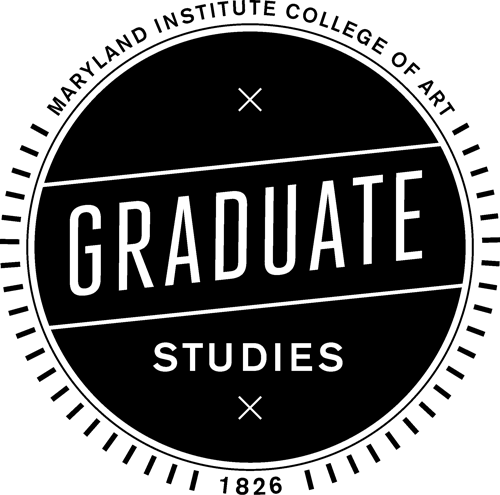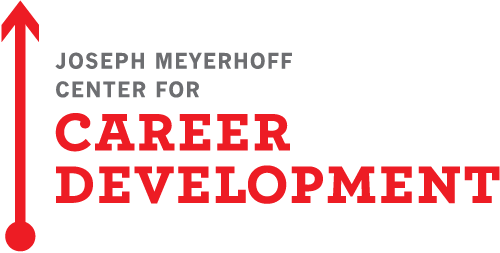(YOU)
Activate Your Practice
Getting Started
- Establish and use your MICA email account
- Attend Graduate Orientation activities
- Familiarize yourself with the Graduate Student Field Guide
- Discuss your degree plan and course selection & sequencing with program director / advisor
- Become familiar with MICA’s research and technical resources:
- Attend skill based orientations in the Graduate Research Lab and Woodshop to access specialized resources and equipment
- Create your profile in MICAnetwork, the job and opportunity database with Career Development
Building a Community and Creative Network
- Visit local galleries and museums and attend exhibitions, performances, festivals using these resources:
- Visit national exhibitions and events: Visit Armory Arts Week in NY, Printed Matter Book Fair in NY, or similar events, biennials, etc.
- Research and connect to professional organizations within your field
- Get to know the faculty members and other students in your graduate community
- Hold open studio visits with peers and across programs
- Engage with the broader Baltimore community; volunteer on and off-campus
- Activate underutilized spaces and innovative venues in Baltimore for exhibitions, events and workshops in collaboration with peers
- Participate or become a member of the Graduate Student Council (student government)
- Apply for a solo student exhibition through GradEX (student-run gallery series) and group exhibitions nationally and internationally
- Attend or present at Salons (monthly artist showcase)
- Apply for funding for a graduate Pop-Up Event, graduate student activity funds
- Research and apply for summer internships or opportunities in November-March for best results
- Join & use the MICA Alumni Facebook/LinkedIn groups for networking with alumni
- Join MICA Career Development Facebook group for schedule of career development workshops
Developing Research and Studio Practice
- Attend artist/designer/scholar lectures on and off campus
- Utilize the Writing Studio, Decker Library to hone your research and writing skills, especially in critical theory
- Make an appointment with your program’s library specialist to discuss research in support of your courses and studio or design practices, papers, etc.
- Build a bibliography of books, magazines and websites that inspire and inform your work
- Apply for a Graduate Research Development Grant to support your creative practice
- Apply for an Office of Community Engagement Grant to support work in the Baltimore community (link)
- Submit work for the 1st Year Graduate Juried Exhibition
- Attend alumni panel discussions, including Flash Forward
- Develop mentor relationship with someone on campus (student, faculty, staff)
- View student/alumni websites and work in MICA Portfolios to explore possible career paths
- Take advantage of free tech (software/hardware) tutorials at Lynda.com
- Attend a Documenting Your Work program or watch a tutorial online
Refining Your Career Tools
- Visit Career Development and schedule an appointment with a Career Counselor
- Refine and update your resume and cover letter
- Document/photograph/upload your creative work
- Prepare a professional portfolio and artist statement
- Keep a file of your best writing samples as your writing portfolio
- Create your profile in MICA Portfolios
- Establish effective web or online presence (www.yourname.com)
- Refine presentation, networking and interviewing skills
- Find and apply for opportunities for public speaking and giving presentations:
- Access grant and residency resources
- Identify faculty and staff for references
Transitioning to Professional Life After MICA
- Conduct research on galleries, organizations, companies and prospective employers
- Utilize MICAnetwork and other relevant job search engines to search for opportunities and create “job agents” or RSS feeds to automatically send you relevant job postings
- Attend the Internship + Career Fair in spring and interview with organizations recruiting on campus
- Apply for the Fine Art Portfolio Reviews to have your work reviewed by regional galleries
- Research and network with alumni using Facebook/LinkedIn
- Talk with faculty, family and friends to make personal and professional connections
- Identify and join professional organizations relevant to your discipline
- Conduct informational interviews and shadow established professionals
- Apply for jobs, graduate school, Fulbright, or other grants and residencies in spring semester into summer (Open Society Institute, Baker, Sondheim, Rubys)
- Tailor professional package to specific opportunities
- Research and pursue exhibition/publication/performance opportunities
- Attend spring Fulbright workshops to apply in summer
- Attend spring workshops on taxes and financial preparation, copyright and intellectual property
- Think about your post-MICA financial situation - find out your student loan payment, cost of living, and other financial obligations
- Research costs of setting up a studio or practice, and acquiring necessary equipment
- Research potential cities for relocation
Continued Education (post-bacs & beyond)
- If pursuing graduate school, research and visit graduate or doctoral programs in your field
- Contact alumni currently enrolled in or recently graduated from graduate programs of interest
- Develop an effective graduate essay and application materials and apply in late fall (if applicable)
(YOU)+
Enhance Your Practice
Entrepreneurship
Learn
Engage
- Attend MICA “Mind Your Business” Events
- Attend Alumni Panels (Offered in Fall)
- Attend Johns Hopkins Carey School of Business, University of Baltimore, Towson University (Global Towson) business workshops
- Pitch your goals/product/service at events:
- Find an angel funder or conduct crowdsource funding (ex. Kickstarter, Indiegogo)
Writing
Learn
- CP 5500 Writing for Artists, Critics and Curators
- CWRT 5559 Finding Words
- CRT 5574 Design / Writing / Research
- CRT 5618 Thesis Writing and Research
- CRST 5700 Thesis Methods Workshop
- GD 5562 Design Language Studio
- CWRT 5403 Advanced Creative Writing
Engage
- Submit to local art publications: What Weekly, Bmore Art, City Paper
- Submit to national art publications
- Publish your work on blogs relevant to your area of study
- Apply to work as a Writing Assistant in the Learning Resource Center
- Attend professional art history/critical studies writing conferences
Teaching
Learn
Engage
- Participate in teaching and learning with technology workshops held by MICA Academic Affairs (ex. Moodle, Behance, Lynda, Kaltura) Click Events.
- Baltimore Design School
- Attend and get involved in professional education conferences:
Curating
Learn
- CP 5500 Writing for Artists, Critics and Curators
- CP 5800 Interdisciplinary Approaches to Curatorial Practice
- CP 5700 Connecting Audiences
Engage
- Publish your work on blogs and in publications relevant to your field of study, and present at national conferences
- Apply for a Graduate Exhibition Assistant and mentor with the Office of Exhibitions team
- Join the Grad Ex jury to coordinate solo student exhibitions
- Apply for PNC Grant, MICA LAB Grant, Apply for Open Society Institute Fellowship
- Propose an exhibition to John Fonda Gallery, Area 405, Gallery CA, Maryland Art Place, The Creative Alliance, School 33, Apex Art in NY, etc.


